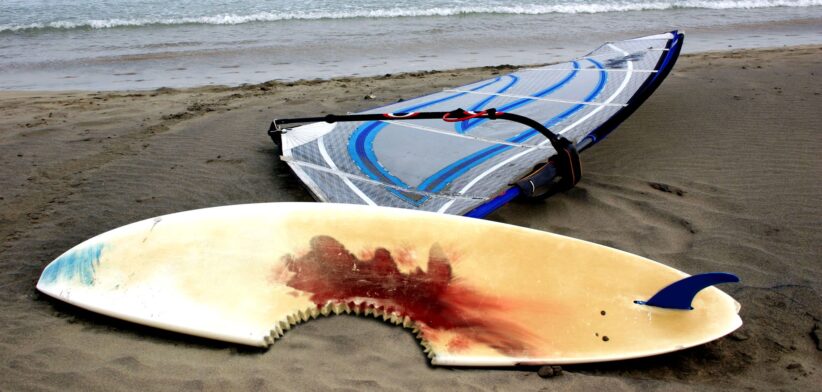A testing process used during the COVID-19 pandemic is identifying sharks involved in attacks, with first responders now being asked to be at the forefront of sample collection.
Australian scientists have found that common injury dressings found in first-aid kits can be used to identify shark species involved in bite incidents.
Study lead author Dr Belinda Martin, of Flinders University, said medical gauze was found to be ideal in gathering DNA samples from aquatic equipment, such as surfboards.
Dr Martin said this new collection method could improve how shark-related incidents were investigated.
“It can provide accurate and timely information about species using regular first-aid equipment carried by surfers, boaties, and emergency responders,” she said.
She said the study involved researchers from the New South Wales Department of Primary Industries and Queensland Department of Agriculture and Fisheries and was based on three separate shark incidents after which samples were obtained from surf skis and a surfboard.
“Using the PCR testing method popularised by COVID-19, (we) showed that a similar approach that uses a medical gauze to collect organic tissue and DNA samples from shark bites works brilliantly.”
Dr Martin said the researchers successfully identified the shark species responsible for each bite across three separate incidents in Australia and South Africa, including an example that was over a month after the incident.
She said the researchers also tested the effectiveness of ordinary gauze when compared to specialised forensic swabs, normally used to collect genetic material from shark bite materials.
“Both the gauze and swabs worked well to identify the shark species.”
Dr Marron said the rapid identification of shark species was important in producing accurate information that could guide future prevention measures and reduce the number of shark incidents.
“Human-shark interactions cause public anxiety, especially following fatal bites, so identifying the species involved, although difficult, is essential to provide information to victims and communities.
“Eye-witness accounts aren’t always accurate because people are dealing with trauma after the event, so we’ve tested and validated a new approach to collect DNA using regular gauze found in first-aid kits.”








